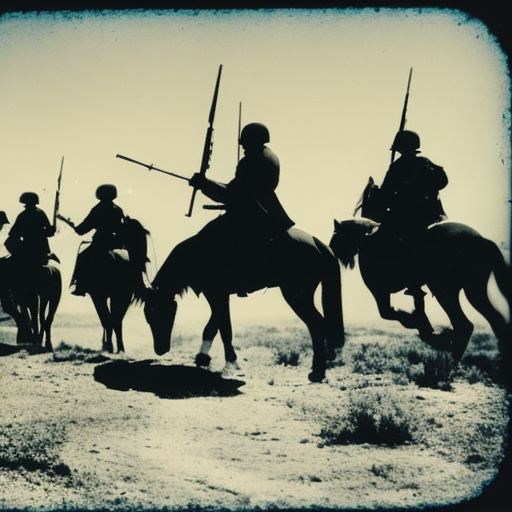Battle of Almansa: The War of Spanish Succession
The Battle of Almansa was a significant military confrontation that took place on April 25, 1707, during the War of Spanish Succession. It was fought between the forces of the Bourbon King Philip V of Spain, supported by French troops, and the combined forces of the Habsburg Archduke Charles of Austria and the English and Dutch allies.
Background:
The War of Spanish Succession was a conflict that arose after the death of the Spanish Habsburg King Charles II in 1700. The main contenders for the Spanish throne were Philip V, a Bourbon and grandson of Louis XIV of France, and Archduke Charles, a Habsburg and grandson of Leopold I, Holy Roman Emperor. The war was fought to determine who would succeed Charles II and control the vast Spanish Empire.
The Battle:
The Battle of Almansa took place in the region of Valencia, Spain. The Bourbon forces, led by the Duke of Berwick, faced the combined forces of the Archduke Charles, commanded by the Marquis of las Minas. The Bourbon army consisted of around 25,000 soldiers, while the Habsburg-allied army had approximately 20,000 troops.
The battle began with a surprise attack by the Bourbon cavalry, which quickly overwhelmed the Habsburg-allied left flank. The Bourbon infantry then launched a fierce assault on the center, causing the Habsburg-allied forces to retreat. The battle lasted several hours, with intense fighting on both sides.
Outcome:
The Battle of Almansa resulted in a decisive victory for the Bourbon forces. The Habsburg-allied army suffered heavy casualties and was forced to retreat. The victory secured Philip V’s position as the King of Spain and dealt a significant blow to the Habsburg cause.
Consequences:
The Battle of Almansa had far-reaching consequences for the War of Spanish Succession. It allowed Philip V to consolidate his control over Spain and its territories, including the American colonies. The victory also weakened the Habsburg cause and their allies, making it more difficult for Archduke Charles to challenge Philip V’s claim to the Spanish throne.
The battle marked a turning point in the war, as it shifted the balance of power in favor of the Bourbon faction. It also demonstrated the military prowess of the Duke of Berwick, who became one of the most prominent commanders of the war.
Legacy:
The Battle of Almansa had a lasting impact on Spain and its history. It solidified the Bourbon dynasty’s rule and set the stage for significant political and social changes in the country. The victory enabled Philip V to implement centralizing reforms and strengthen the monarchy’s authority.
The battle also had repercussions beyond Spain. It influenced the course of the War of Spanish Succession and contributed to the eventual peace settlement. The conflict ended in 1714 with the Treaty of Utrecht, which recognized Philip V as the King of Spain but imposed limitations on the Bourbon dynasty’s power.
In conclusion, the Battle of Almansa was a pivotal event in the War of Spanish Succession. The Bourbon victory secured Philip V’s position as the King of Spain and weakened the Habsburg cause. The battle had significant consequences for Spain and its territories, as well as for the wider European conflict. It marked a turning point in the war and set the stage for subsequent political and social changes in Spain.












